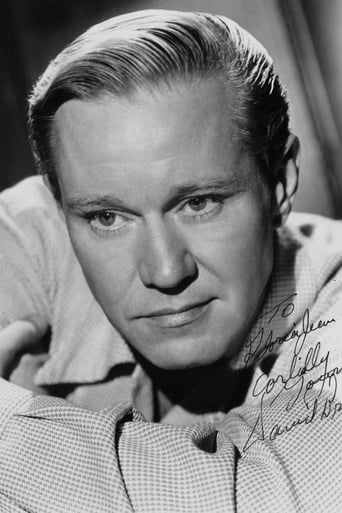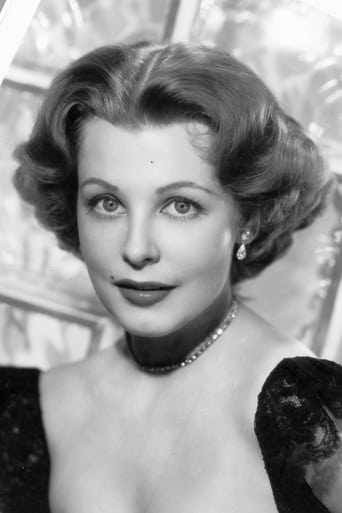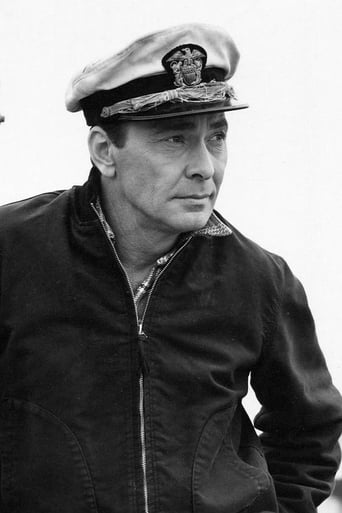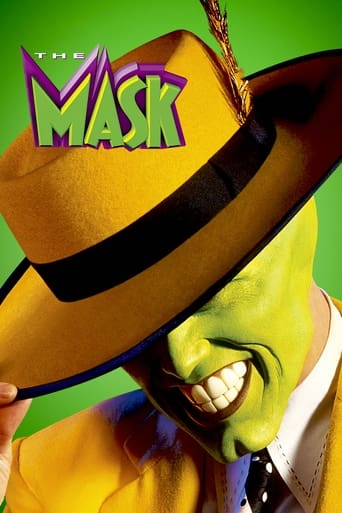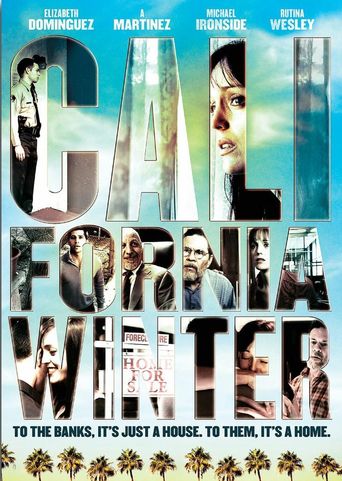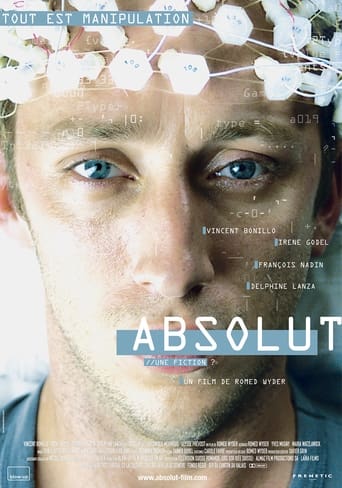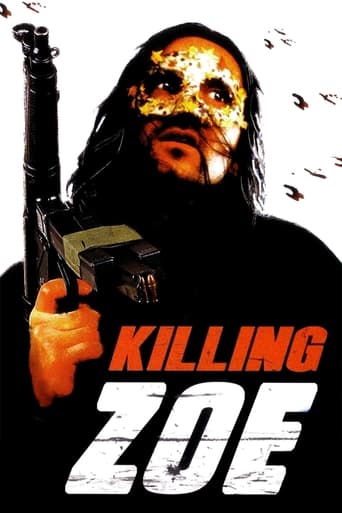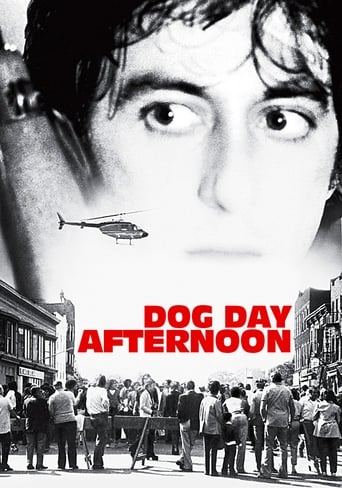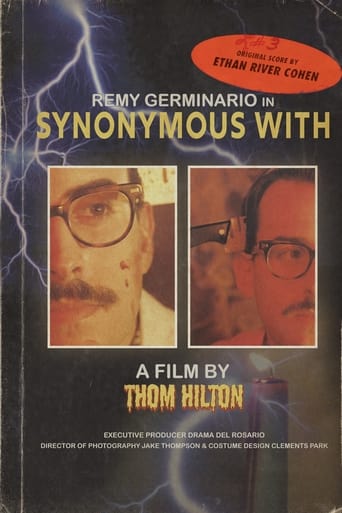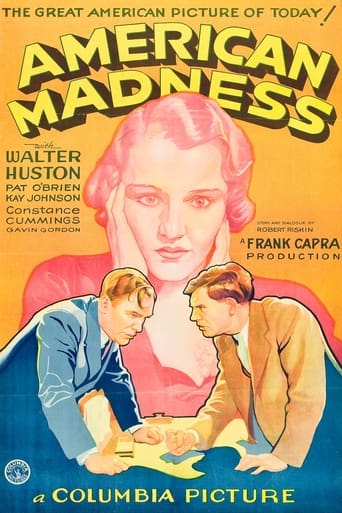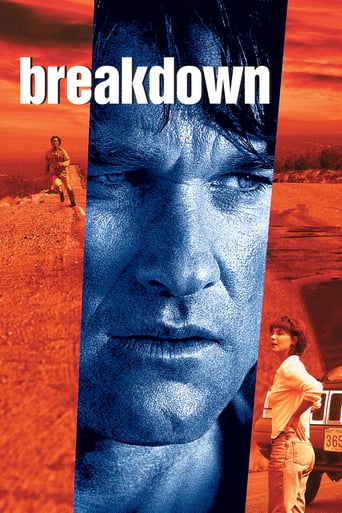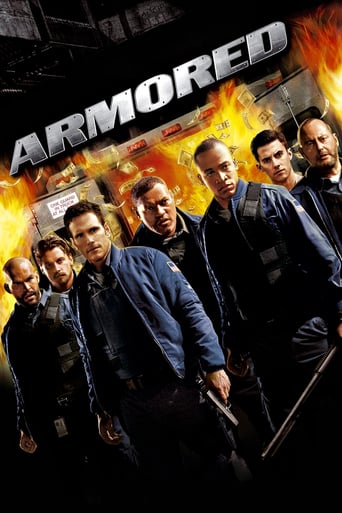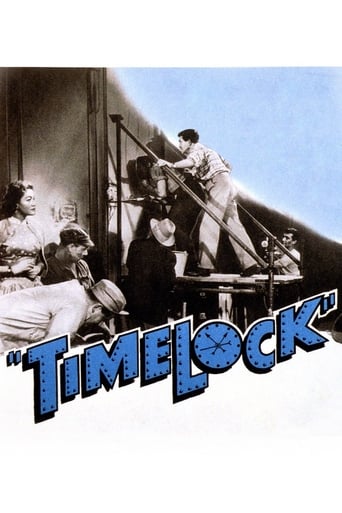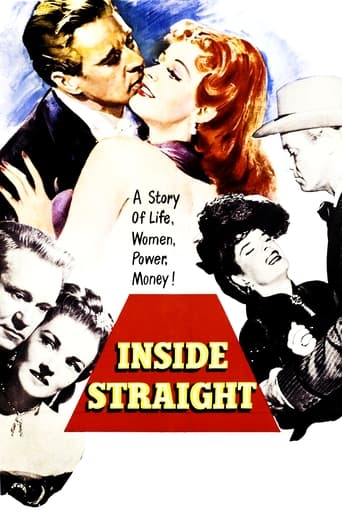
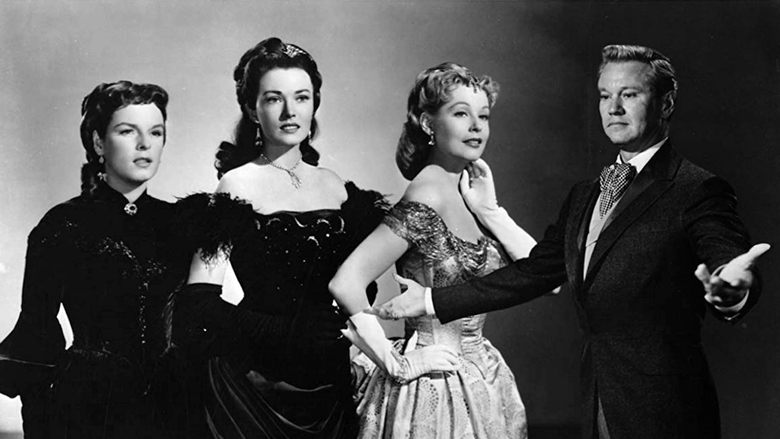
Inside Straight (1951)
A tycoon rises to the top in 19th-century San Francisco through greed and corruption.
Watch Trailer
Cast


Similar titles
Reviews
I think this is a new genre that they're all sort of working their way through it and haven't got all the kinks worked out yet but it's a genre that works for me.
Sick Product of a Sick System
Please don't spend money on this.
One of the worst ways to make a cult movie is to set out to make a cult movie.
Excellent character study, well written and acted. Movie opens with Ada trying to save her savings bank by winning a hand of five-card straight from ruthless wheeler-dealer McCool. If he wins, she loses the bank and depositors lose their money; if she wins, she gets enough from him to save the bank. It's the 19th century before depositor protection from the FDIC. Meanwhile, she has two kings, while McCool has possible straight depending on his hole card. So what's his hole card. Should she bet her bank and its depositors' savings that he doesn't have the inside straight. Bystanders advise her to consider her opponent's character before making a decision. At that point the film turns to a series of flashbacks, each revealing a side to the money-mad McCool's relations with others. But we won't find out the hole card til the end. In a sense, the man's moral core is reflected in the outcome of a poker hand. I detail this opening because it sets up the movie's remainder in compelling fashion. As the flashbacks show, McCool appears driven by only one thing- money. However, a softer side emerges in his relationship with his two buddies (Johnny and Shocker) and his second wife Zoe. So perhaps his inner life is not as cut-and-dried as his many big money operations make it seem. Thus, a greater moral ambiguity emerges as the flashbacks progress, each peeling back a layer in McCool's troubled life. Credit under-rated screenwriter Guy Trosper for both the incisive screenplay and the story concept. A gander at his credits over the years demonstrates an outstanding talent.Actor Brian is excellent as the central character, especially convincing as a ruthless operator. Surprisingly, McCambridge gets a bit of romance and exhibits flashes of sympathy as the put-upon Ada. At the same time, Chaney gets a likable role as the loyal Serbian sidekick Shocker, while Sullivan has a secondary part that may have been a studio add-on.Anyway, the movie strikes me as something of an oddity coming from big budget MGM. The film itself is in b&w, but well mounted, particularly the crowd scenes. At the same time, it's an exception that neither of the two headliners has a particularly likable role, which is not the usual way of promoting headliner careers. But then 1951 was also a time when the studio was branching into darker themes under new honcho Dore Schary, and away from L.B. Mayer's sunny wholesome fare. That may explain the movie's hybrid status, somewhere between an A and B production.All in all, the film strikes me as something of a sleeper, particularly in it's construction, theme, and absolutely appropriate ending. Perhaps it's the rather dour subject matter, and morally ambivalent leads that have reduced the 75-minutes to real obscurity. In my little book, however, the movie definitely merits a measure of re-discovery.
At the opening, the town bank is in trouble, and Ada Strich, the owner (Mercedes McCambridge) is playing poker. MacCool, the man across the table, (David Brian) makes her an offer she can't refuse to try to save the bank. She thinks she knows her opponent well enough to tell if he is bluffing or not. Then we start taking a trip down memory lane in flashbacks, so see how we got to where we are today. Apparently they had quite a past, and Ada has never forgotten a minute of it. MacCool himself had been way up high, and flat out broke, so he was the player of the day. As the various people in the room speak, we learn they all had a past with MacCool. Then about halfway through, we are treated to a snooze of a song What Can a Poor Maiden Do, performed by Arlene Dahl. While done well, yet in a very stiff manor, it sure brought the film to a screeching halt. Should have left it out. Same goes for Up in a Balloon, sung by Monica Lewis... As the story continues, we find that they had more dealings together over the years. McCambridge had JUST won her Oscar for All the Kings Men; She and Brian would both have long careers in Hollywood, but Brian ended up doing mostly television series work during the 1960s, 70s, and 80s, Some fun faces appear in the story - Lon Chaney Jr and Barbara Billingsly as a drunk who talks too much. Even Percy Helton, who you will recognize by his voice! he appeared in millions of films, but about half the parts were uncredited. (in "Straight", he records a deed when someone sells property.) Fun film, for a period piece. Better than I expected. Directed by Gerald Mayer, nephew of Louis B.
I am not used to see dramas anymore, since a long time. I am rather a B movie viewer: noir, crime, westerns, adventures, sci-fi...But I decided to try this one, which was in the middle of the tons of DVD I have to see. And I was amazed. Of course, I have seen this kind of story in the - far - past. Solid dramas, grade A movies, produced by big studios, with major stars.I had never heard of this one. However I knew Gerald Mayer's films. I have all them, except one, in my library. But I don't remind the topics.Anyway, this movie tells the rise and fall of a rugged adventurer - David Brian, in the late 1870's in San Francisco. Characters are pretty well described, and the story not breathtaking but interesting. You're stuck to it. Narration is built around flashbacks. This way, you can understand the inner character of the lead - Brian. And, curiously, that's the last flashback, just before the end of the movie, that describes you the best the very meaning of why Brian is such an ambivalent character in this film. It's poignant, and you feel a sort of strange sensation inside of yourself. Why just before the end ? I don't say it's the wrong place to tell that. Not at all. Just it's unusual. And the very ending, one minute later, is unforgettable.Don't miss it.I'll also mention Lon Chabey Jr who gives here a very interesting performance we usually never witness with him.
Rip McCool (David Brian) has 19th century San Francisco at his mercy since he has all the money and they have none. Angry villagers are lining up outside the bank before it opens in the morning so that they can clean out what little there is or kick some banker (Mercedes McCambridge) butt. Friends, enemies and the ambivalent gather in Rip's upholstered parlor to plead for themselves and the town. Through a series of flashbacks, we see the roller coaster journey of an ambitious man coming up through Hard Knocks University, who has managed to frustrate and confound all with whom he comes in contact. They want to like him, but he just won't let 'em. An exception is Rip's loyal man Friday (Lon Chaney, Jr.), who knows why Rip is a hard case and unlike the other characters, has seen a positive side of his nature. He may just be easily impressed. The suspense turns on whether McCool will bail out the city or let it go to the pelicans. The city's fate is to be decided by single game of stud poker between McCool and his arch rival the banker. This can of corn is worth watching and should be better known. MGM production values and fine performances by almost everyone provide an enjoyable watch. Barbara Billingsley (aka June Cleaver) has a nice bit and I found it gratifying to see Lon Chaney, Jr. in a role that allowed him to do more (emotionally) than he normally was asked to do. All in all, pretty enjoyable.


